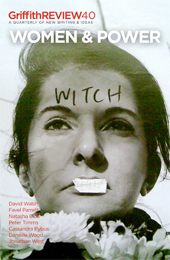Featured in

- Published 20130604
- ISBN: 9781922079978
- Extent: 288 pp
- Paperback (234 x 153mm), eBook

Already a subscriber? Sign in here
If you are an educator or student wishing to access content for study purposes please contact us at griffithreview@griffith.edu.au
Share article
More from author

Home as a weapon of cultural destruction
Non-fictionIt was simply expected that Aboriginal people would accept the values and behaviour of the dominant European culture. The Welfare Board insisted that Aboriginal people not only earn an independent living but show the Board they could save money in a bank account. They had to demonstrate that they were avoiding contact with other Aboriginal people and refusing to participate in community-oriented activities, such as sharing resources with kinsfolk and travelling to visit their relatives and home Country. Over and over again, the Board’s reports criticised Aboriginal people for being among their own kind and clinging together in groups. To achieve their assimilation aims, the Welfare Board implemented a crude ‘carrot and stick’ incentive in an attempt to modify Aboriginal behaviour: if Aboriginal people could convince the Welfare Officers that they had cut themselves off entirely from their culture, family and land, they would be rewarded with an ‘Exemption Certificate’.
More from this edition

Risky business
ReportageNICKI IS ONE of my growing stable of female boxing students. She was wrapping her hands to begin a training session when she asked...

League of their own
GR Online'It is now more dangerous to be a woman than a soldier in modern conflicts.'– Major General Patrick Cammaert, 2008, former UN Peacekeeping Operation...

Homeopathy
MemoirTRUTH IS AS truth believes. When the piano needed tuning and the blind piano tuner came to the house, and sat down, and tuned...